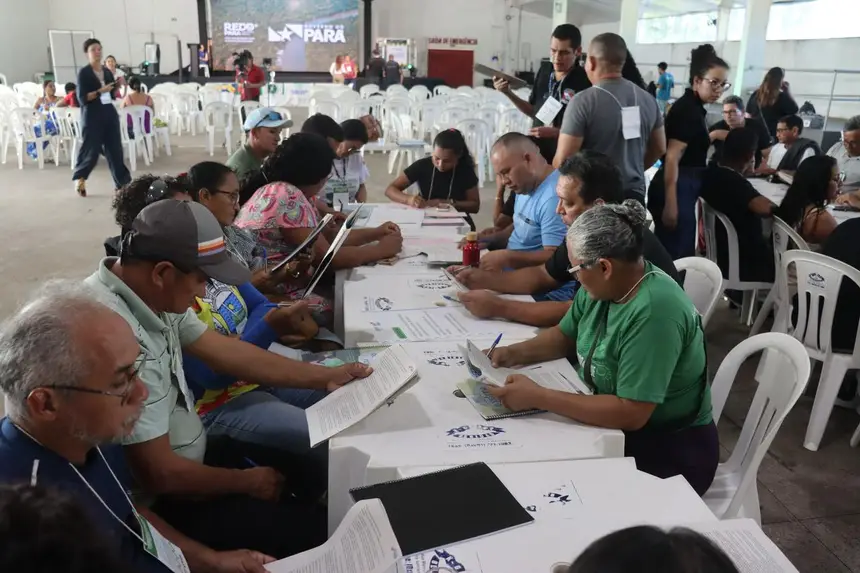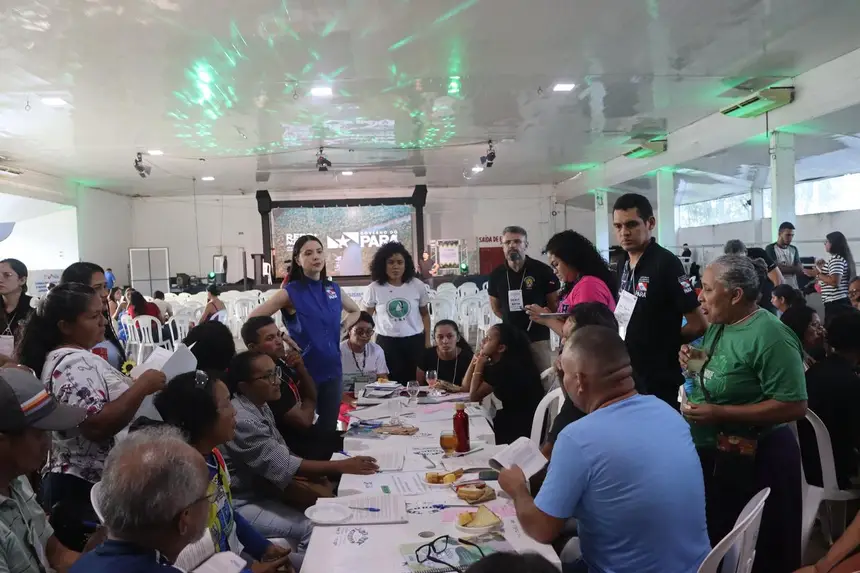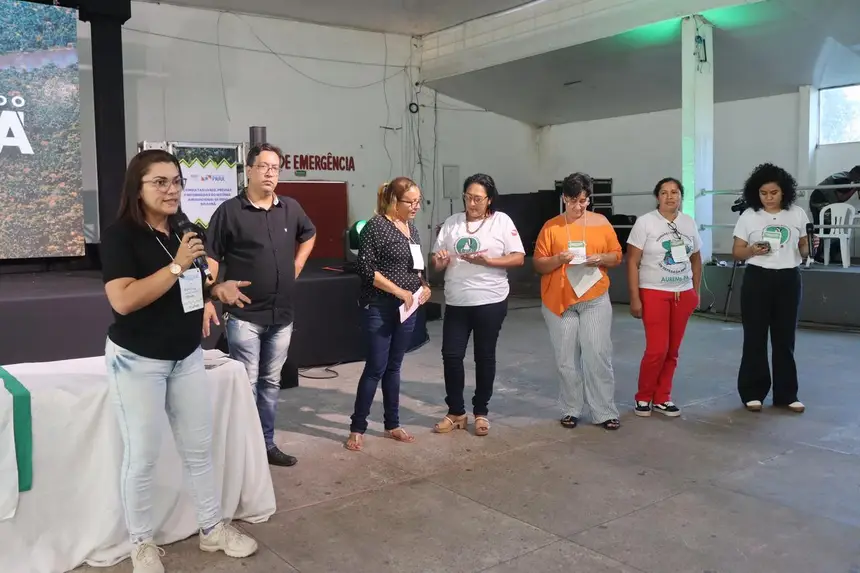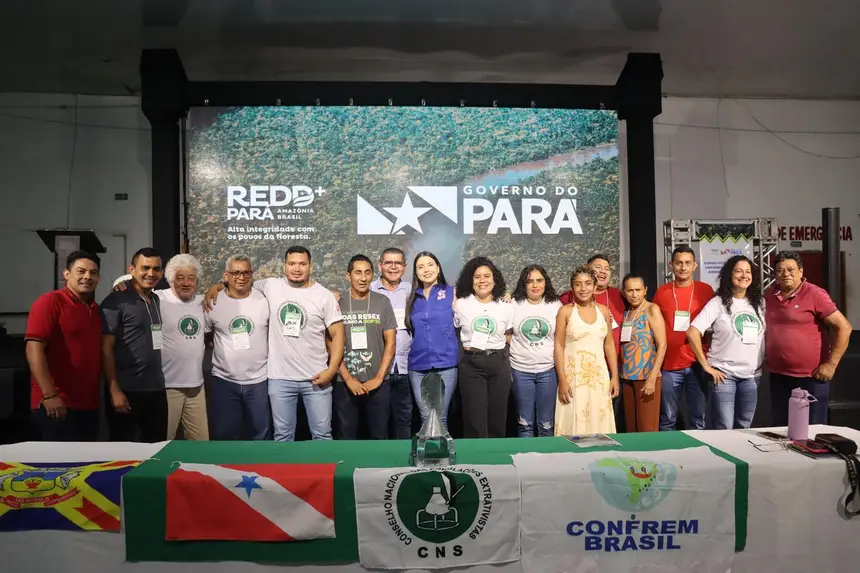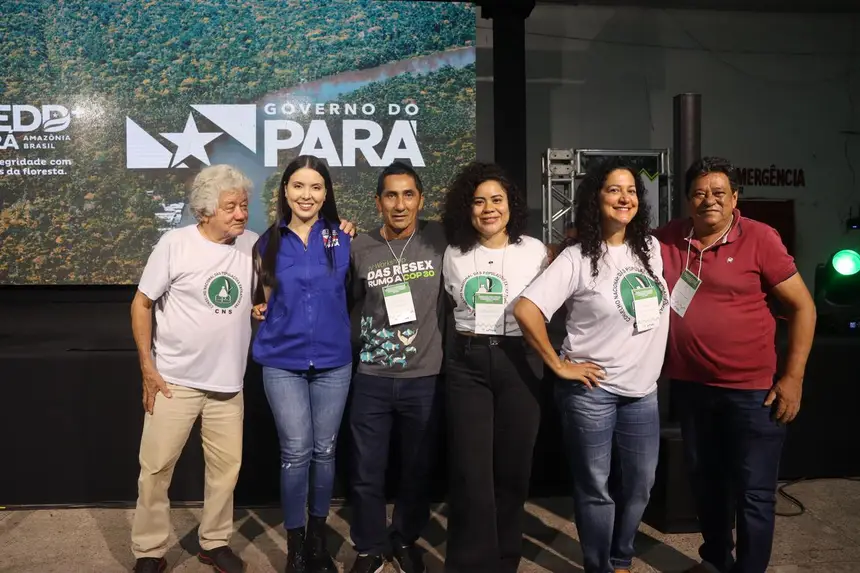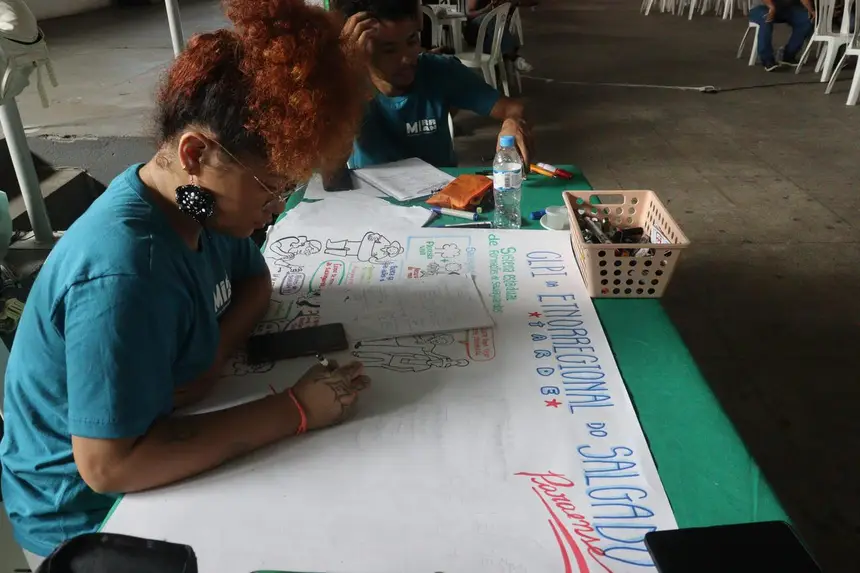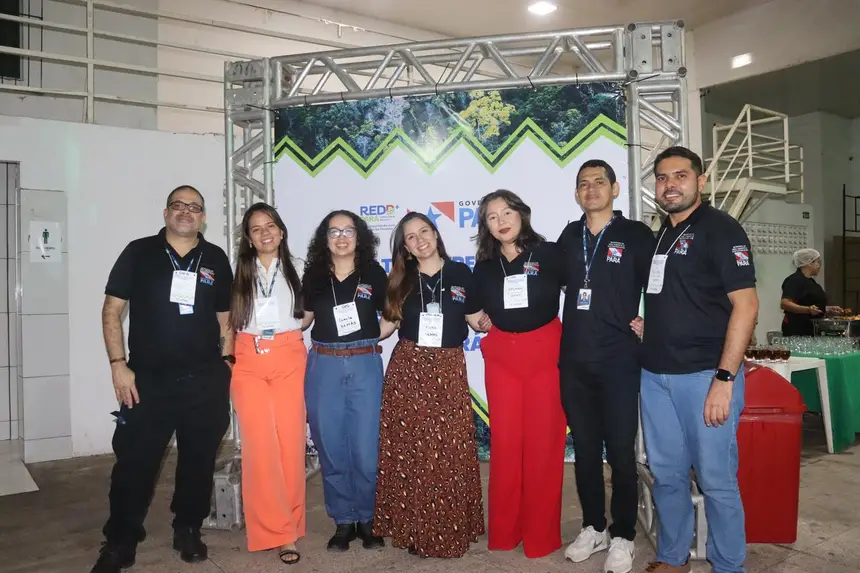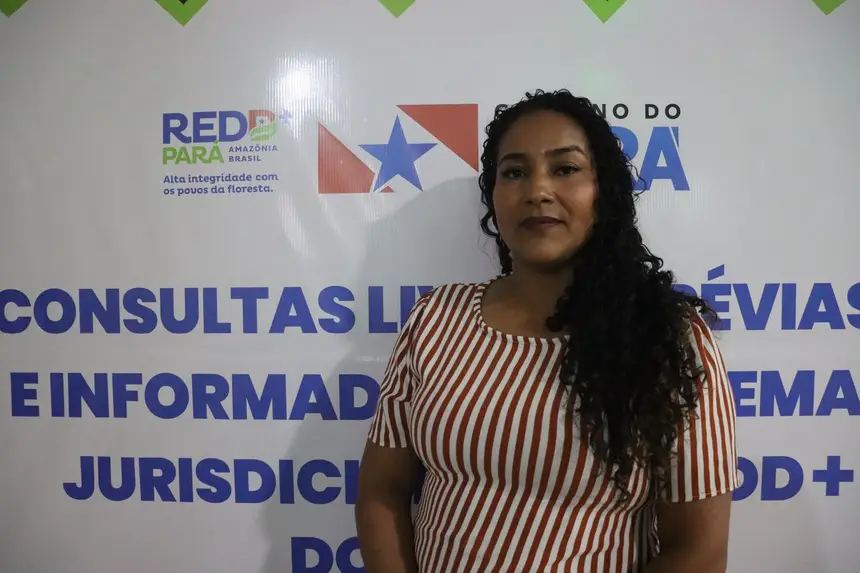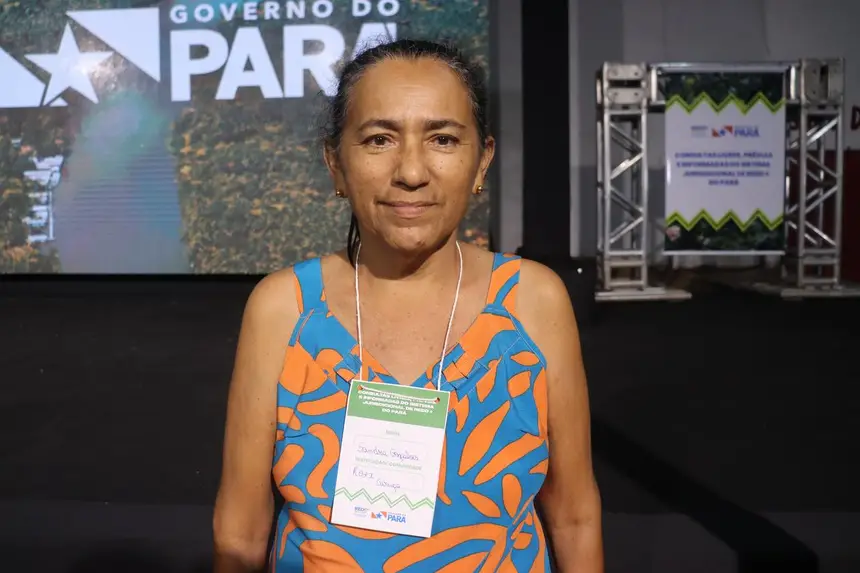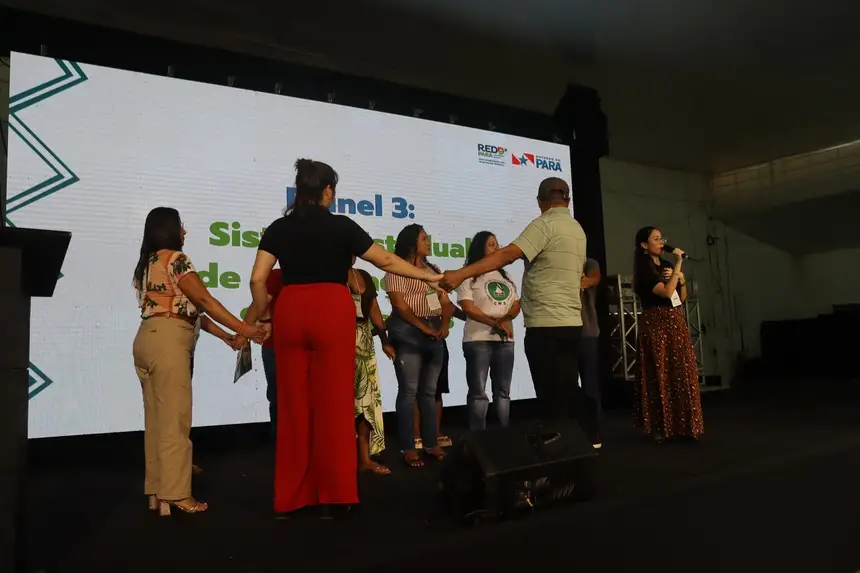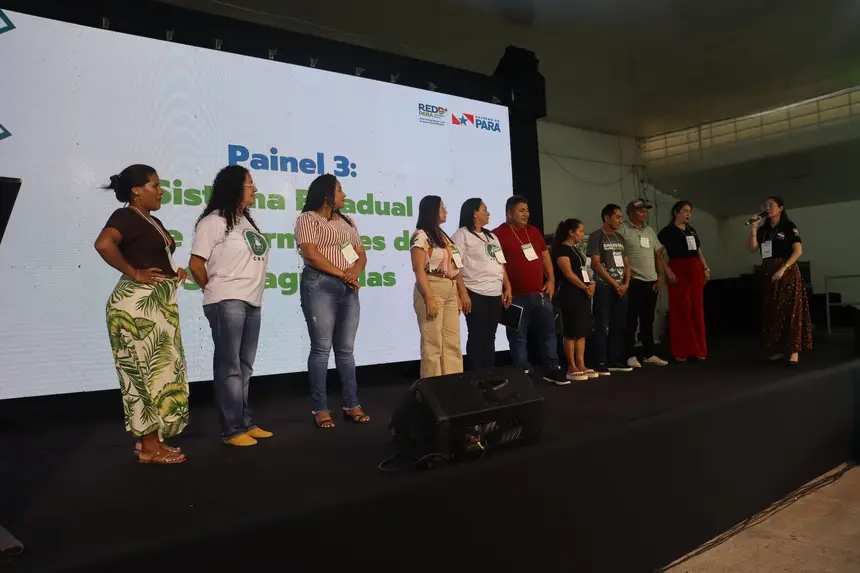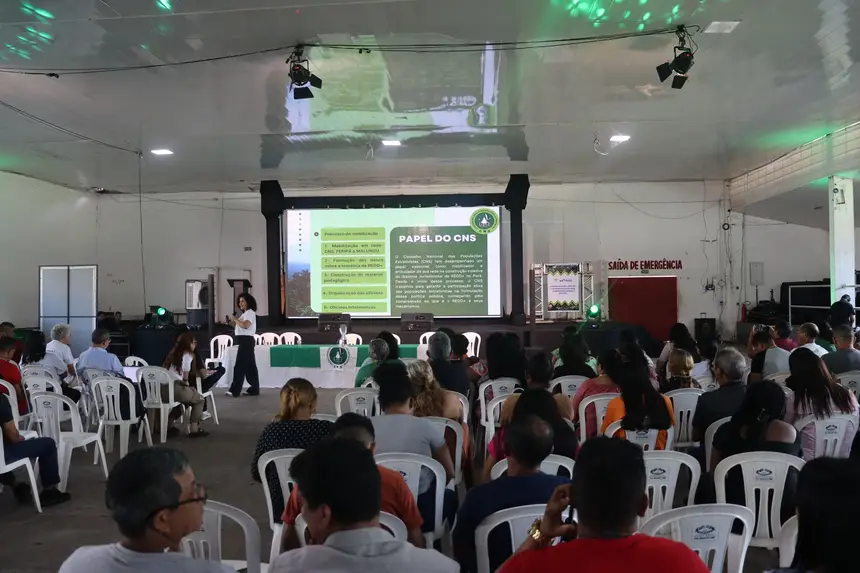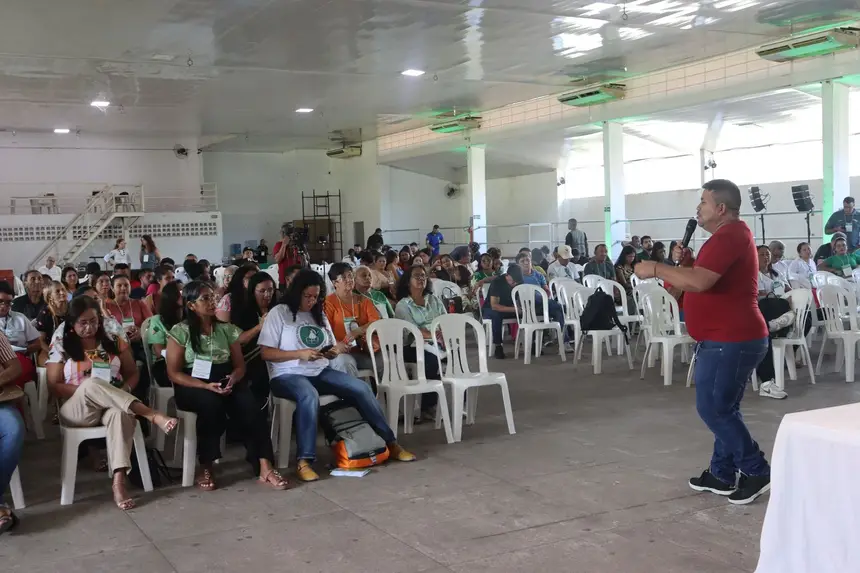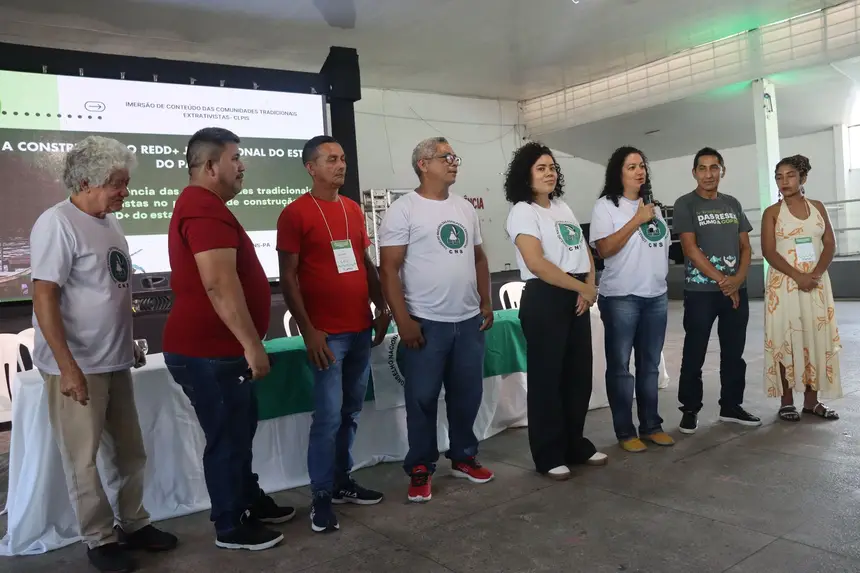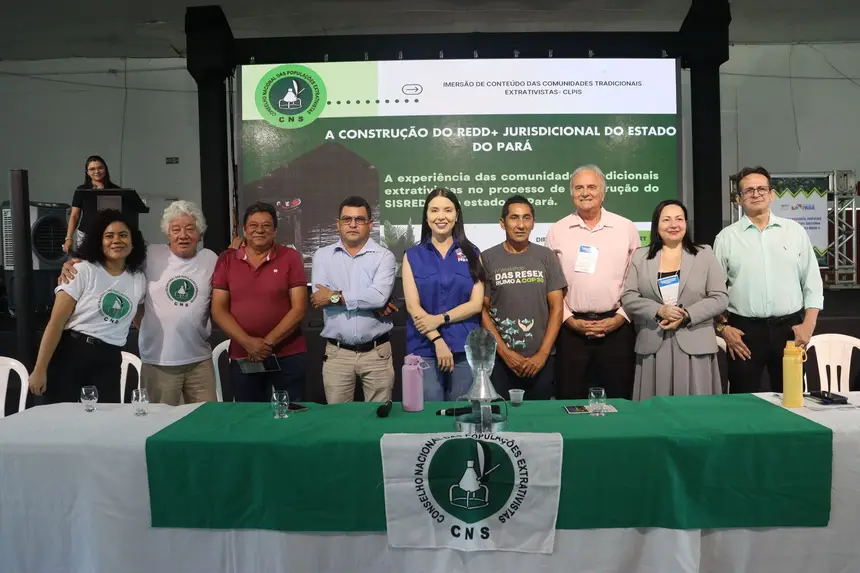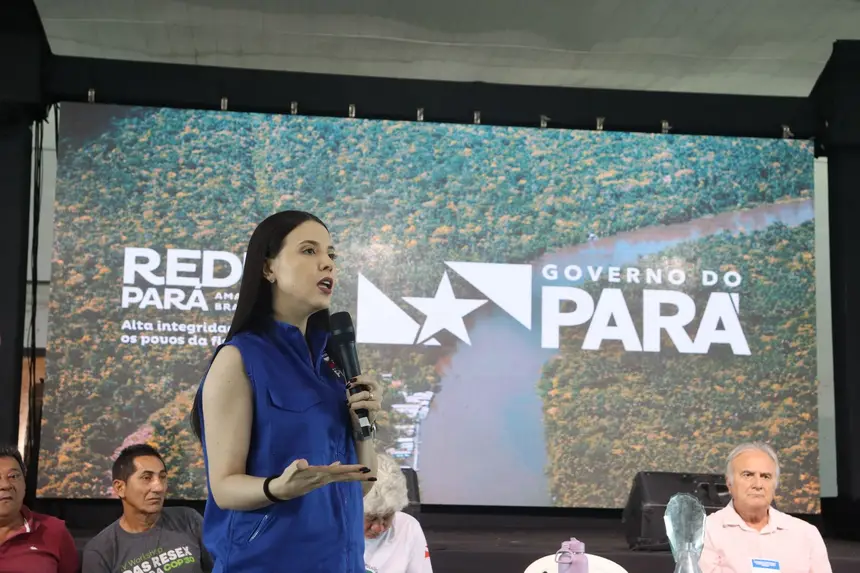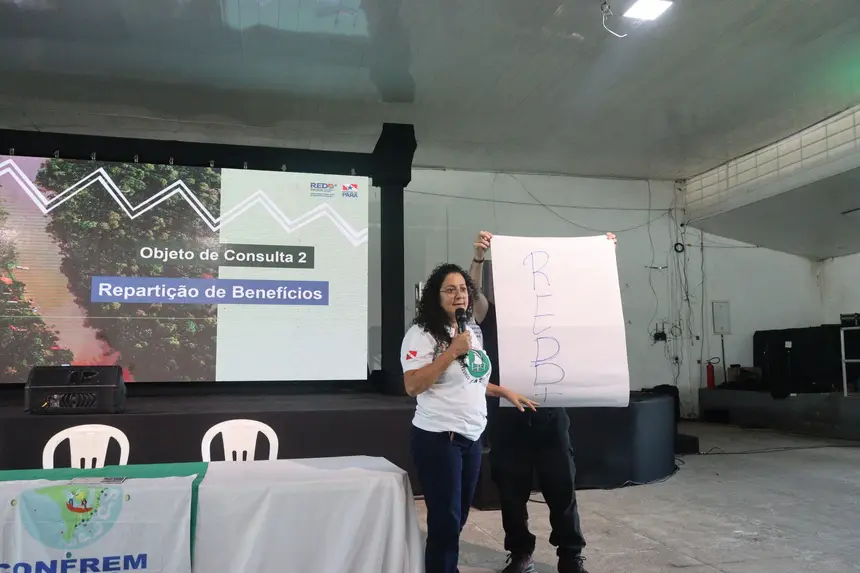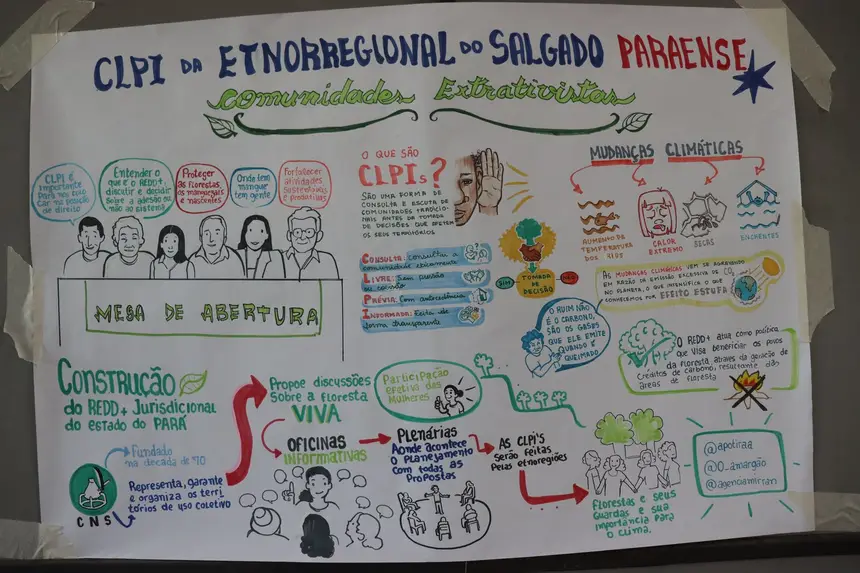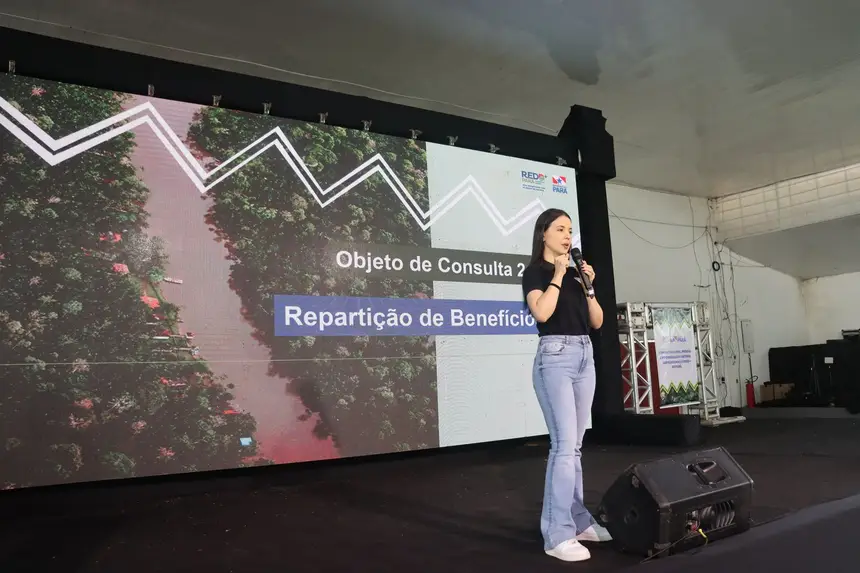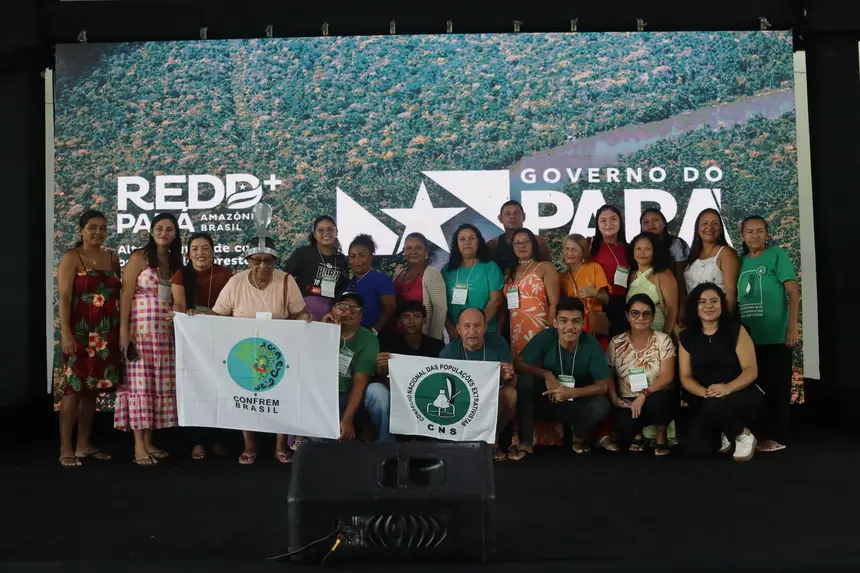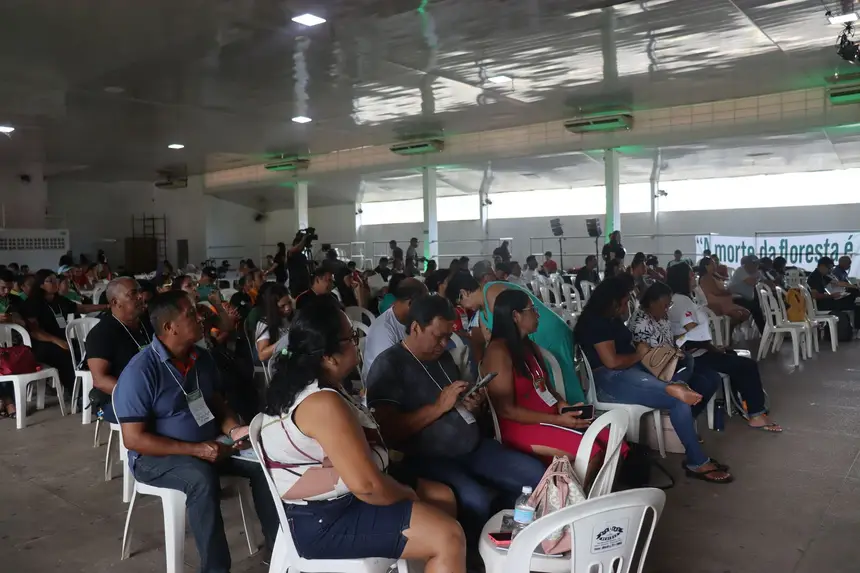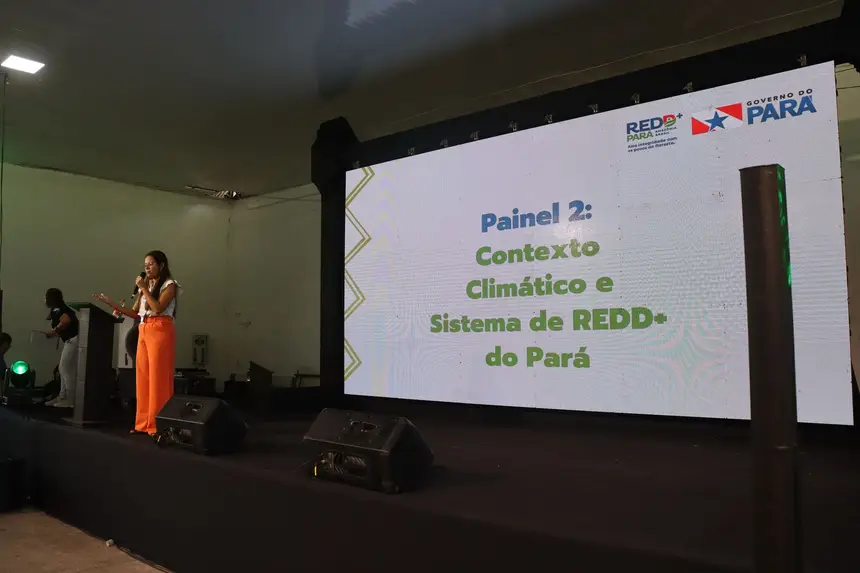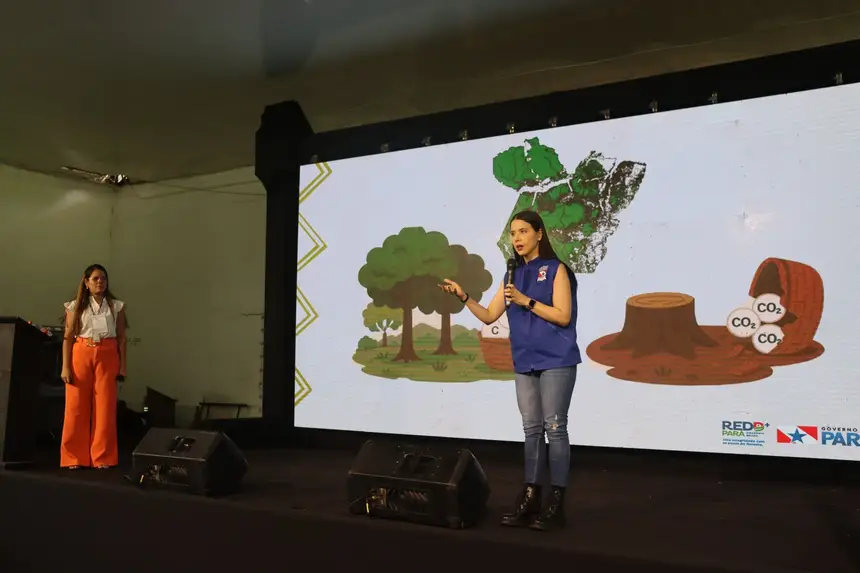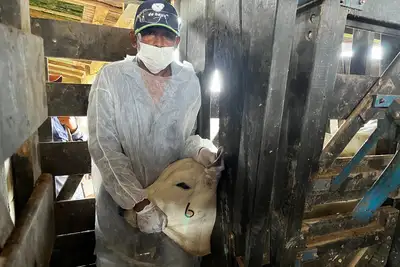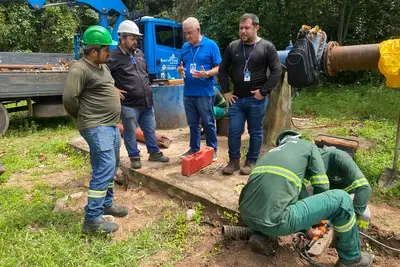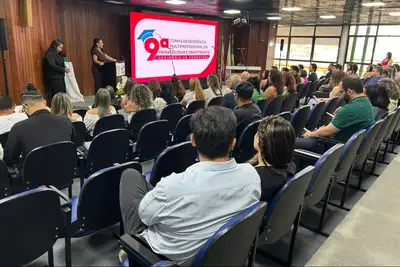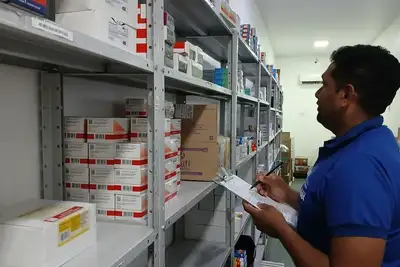State begins largest consultation process with traditional peoples and communities in its history regarding the REDD+ Jurisdictional System
With this process, which will also be one of the most participatory in the country, the State initiates a historic process that is part of the construction of the carbon credit generation system
The Government of Pará began, this Wednesday (28), the largest consultation process with Indigenous Peoples, Quilombolas, Traditional Communities, and Family Farmers (PIQCTAFs) in its history, and one of the largest ever seen in Brazil. This marks the beginning of the Free, Prior, and Informed Consultations (CLPIs), and public consultations, as a fundamental part of building the REDD+ Jurisdictional System (Reducing Emissions from Deforestation and Forest Degradation) for carbon credit generation in Pará.
The first CLPI is being held in the municipality of Castanhal, with extractive communities. In total, there will be 40 CLPIs conducted in the Pará territory, organized by region, according to social segments and territories. The aim of this process is to ensure the participation of traditional peoples and communities in the construction of the policy and in the design of benefit sharing.
In addition to the CLPIs, seven other public consultations aimed at family farmers will be held, a differential that enhances the process led by the Pará government and strengthens popular participation.
“In this historic process, we will conduct 47 consultations, the largest listening and dialogue process with traditional peoples and communities ever seen in Brazil. We do this because we are clear that for this policy to exist, the peoples must be consulted and heard. Therefore, we have ensured their participation since the beginning of this construction, in 2022, and in addition, we have also strengthened their participation in the State Climate Policy Management Committee and in the entire decision-making process regarding our public policies. This is fundamental. With the CLPIs, we reaffirm this commitment, guaranteeing this process of collective construction in their territories and regions,” emphasizes the governor of Pará, Helder Barbalho.
Josele Santos is from the Fernandes Belo community, in the municipality of Viseu, from the Gurupi Piriá Extractive Reserve, and observes the importance of immersion in the process for the collective construction of the system. “Participating in this consultation with the State Government is important for us. I have followed my father's fight for the preservation of nature since I was a child, and now seeing a project that brings resources for communities to protect mangroves and forests is something historic for our reserve,” he states.
“We know that by being together with the government, we can preserve our territory more and more, which is extensive — especially for us, from an open border area. Whenever we build together, the processes flow better. That’s why we are here participating in the public consultation on REDD+, alongside the government and partners like the CNS, which is the result of a collective construction,” reinforces Sandra Gonçalves. She came from the Mãe Grande de Curuçá Extractive Reserve to participate in the collective construction process.
“The REDD+ policy is a way of raising resources from the reduction of deforestation. Pará has observed successive reductions in deforestation, and this reduction creates the possibility for the State to raise resources, which must then be reinvested in economic development policies and protection of territories. This is the arrangement we have been building since 2022,” explains Raul Protázio Romão, Secretary of Environment and Sustainability of Pará.
“This consultation process is quite robust regarding REDD+, but it will also cross-subsidize public policies from now on because, evidently, in these opportunities, we will address the various public policies that reach these communities,” assures Raul Protázio Romão.
Renata Nobre, Deputy Secretary of Water Resources and Climate Management of Semas, led the first days of the event and emphasized the importance of ensuring the participation of forest guardians. “The REDD+ Jurisdictional System will enhance the execution of public policies in the State. The start of the CLPIs is the result of two years of construction in governance spaces, with informative workshops, listening moments, working groups, and collectivity, respecting the processes of the communities and always ensuring that they are heard and valued,” she emphasizes.
The consultations with quilombola communities will be 17, held in Abaetetuba, Ananindeua, Aurora do Pará, Baião, Barcarena, Cachoeira do Arari, Cametá, Castanhal, Gurupá, Mocajuba, Moju, Óbidos, Oriximiná, Salvaterra, Santa Luzia do Pará, Santarém, and São Miguel do Guamá.
Seven CLPIs will be held with extractive populations in Abaetetuba, Altamira, Belém, Breves, Castanhal, and Santarém. Family farmers will participate in seven consultations in Belém, Castanhal, Redenção, Altamira, Santarém, Novo Repartimento, and Marabá. A broad consultation process with Indigenous Peoples, in the final phase of negotiation, will also be conducted.
*How it works:*
Communities are consulted about the text of the draft law that will formalize the policy in the State, about the proposal for sharing the benefits from the raised resources, in addition to the so-called “REDD+ subprograms,” which consist of sustainable development actions that can be carried out in the territories.
*Collective construction and safeguarding of rights -* Érica Monteiro, representative of the Coordination of Associations of Remaining Quilombo Communities of Pará (Malungu), highlights the importance of active listening and the incorporation of quilombola specificities in the construction of the consultation protocol. “It is a fundamental step because it guarantees the social participation of all communities, including those that do not yet have their own protocol.”
For Letícia Moraes, Vice President of the National Council of Extractive Populations (CNS), this moment represents a historic milestone. “This process safeguards our rights, values the living forest, and, above all, the people who preserve it. We, as traditional communities, are proud to be building this path together with the State.”
Ronaldo Amanayé, coordinator of the Federation of Indigenous Peoples of Pará (Fepipa), reinforced that the original peoples not only participate but build the process from their bases. “We are here with courage to face a complex issue, always respecting the autonomy of each people, bringing information and building a policy that brings concrete benefits to our territories, historically lacking basic public policies.”
At the end of each consultation, the communities will inform the State whether they wish their territories to be part of the system, in a process that ensures autonomy and will respect the decision of each territory. The REDD+ System of Pará is based on international climate financing mechanisms, where the proof of reduction in greenhouse gas emissions allows for the generation of carbon credits. These credits, when sold, can generate revenues that should be reinvested in public policies aimed at conservation, sustainability, and improving the quality of life of the communities that live in and care for the forest.
The CLPI process also respects ILO Convention 169 (International Labour Organization), which guarantees the right of traditional peoples and communities to prior and informed consultation on measures that involve them.
Text by Igor Nascimento and Jamille Leão / Ascom Semas



